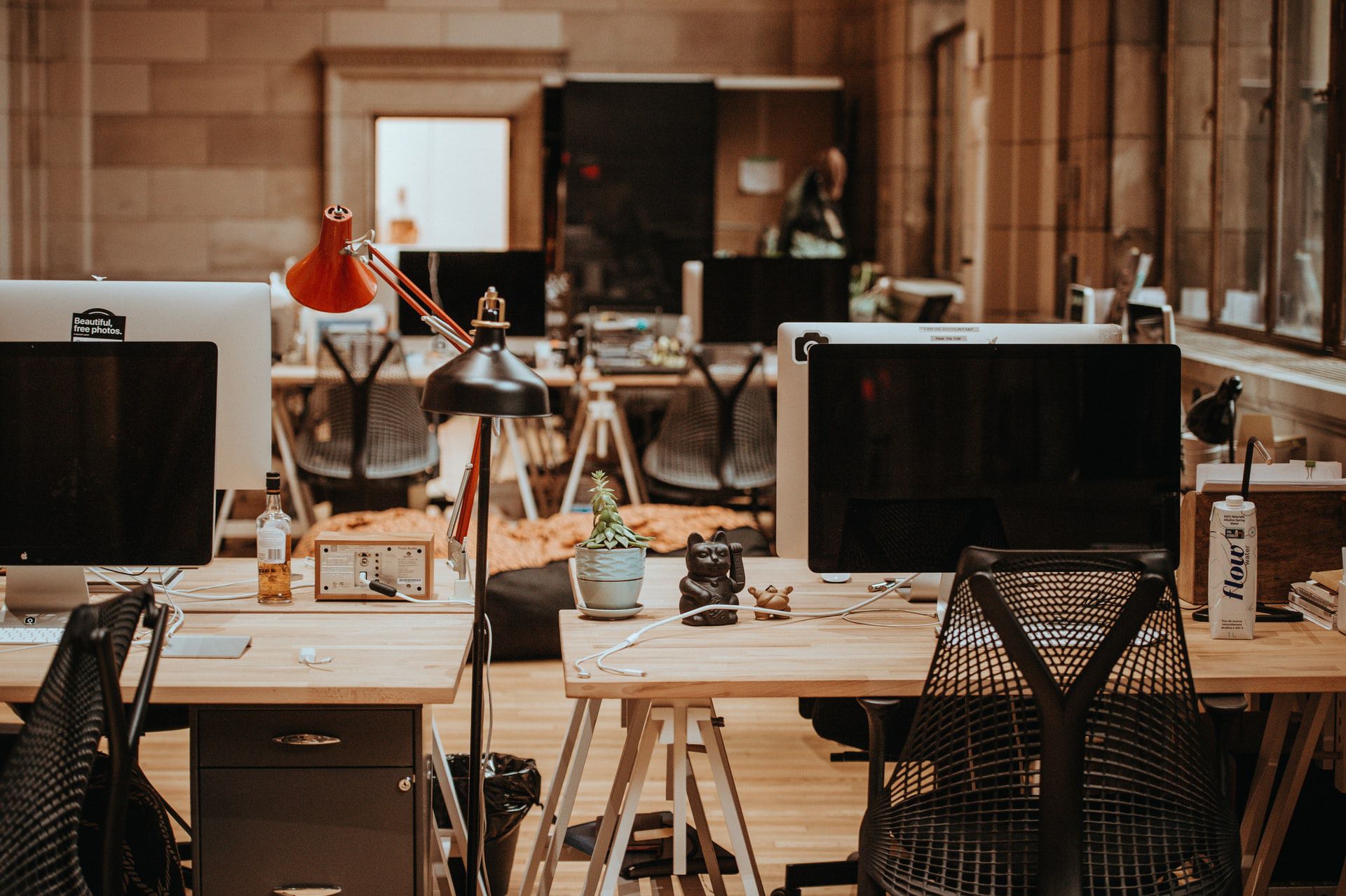How mindfulness & meditation can help you at work
May 15, 2020 — Steven Yorke
For a lot of us, work can be one of the most common sources of stress, anxiety and negative feelings. Heavy workloads, tight deadlines, difficult colleagues, and performance reviews don’t exactly spark joy in most of us.
Meditation and mindfulness aren’t quick fixes for problems at work, but with time and practice, they can transform the way we handle stressful situations and the way that we interact with colleagues.
Breathing meditation
Adding a meditation practice to your daily routine is a great first step towards helping you to deal with negative feelings about work. A common object of focus during meditation is the breath. This means that you use the breath as an anchor to the present moment. You just sit and watch the breath, wherever it appears most clearly - in the rise and fall of your chest, the expansion of your abdomen, or the feeling of the air as it leaves the tip of your nose.
You might find it difficult at first to just sit and watch your breath. Your mind will wander. This is completely normal and you don’t need to feel bad about it. When you realise that you have become lost in thought, just notice it and return to the sensations of breathing.
Starting a regular habit of meditation will help to cultivate an awareness of the present that you will soon begin to notice in your day-to-day life. It can help you to develop clarity, improve concentration, and reduce stress.
Dealing with anxiety and stress
Through meditation, we can also develop a healthier relationship with stress and anxiety by learning to observe the symptoms as they arise. Just as you would observe the breath during meditation, try to observe the anxious feelings without judgment. Accept that anxiety is a normal and important mental process. Witness it clearly, with a sense of curiosity. With time and practice, this method of observing anxious feelings without getting too attached to them will get easier and easier.
When you’re caught in a particularly stressful moment, you can also use short breathing exercises to ground yourself and to calm yourself down.
Getting a good night’s sleep
A lot of us have been in the situation where we’re laying in bed at night, tossing and turning, not being able to sleep because we can’t stop thinking about the presentation that we have to do in the morning, or the deadline that’s approaching, or some mammoth task that we’ve been putting off for a few weeks.
We know that worry and a lack of sleep are completely counter-productive, and yet the internal chatter continues. Listening to a guided sleep meditation or sleep sounds can be a huge help to calm the mind and help us drift off to a restful sleep.
A body scan meditation, for example, guides you through the process of relaxing every muscle in your body, preparing your body for sleep.
Improving your relationship with colleagues
When we’re at work, we’ll inevitably have to deal with somebody who we don’t get on with or who we find unpleasant to deal with. There’s often not much that we can do to change somebody else’s behaviour, however, what we can affect is our own reaction to that behaviour.
Loving kindness (or ‘Metta’) meditation, involves directing warmth and positivity towards ourselves and others. By directing positive thoughts during meditation towards people that we don’t normally get along with, it can actually make us feel more empathetic and compassionate towards them, and to everybody else around us, in our day-to-day lives. This has been shown to increase happiness, reduce stress and improve overall wellbeing, as well as enhancing our relationships with those around us.
With time and practice, your mindfulness meditation routine can also help you deal with conflict situations, as you become more able to recognize negative feelings as they arise, and let go of anything that doesn’t serve you.
Increasing your creativity
Today, let's think about the positive effect that mindfulness meditation can have on creativity. Simply speaking, the part of the brain that deals with emotions (the limbic system) can get in the way of the part of the brain that is utilized for creativity (the neocortex). So reducing things like stress and anxiety through meditation can reduce activity in the limbic system, allowing creativity to flow in the neocortex. A 2012 study showed that meditators have a reduced tendency to overlook novel and adaptive ways of responding to situations.
Improving your productivity and your enjoyment of work
Through meditation and mindfulness, you can learn to be more present, more engaged, and find more joy in the work that you are doing. I’d like to leave you with a quote from Alan Watts:
“This is the real secret of life - to be completely engaged with what you are doing in the here and now. And instead of calling it work, realize it is play.”
If you'd like to introduce mindfulness and minfulness to your workplace and add the free Medito app to your workplace wellbeing offering, download our free workplace pack.
The Medito app contains a specific meditation pack about being mindful in the workplace, including meditations on dealing with change, managing conflict, managing stress, productivity, focus, work-life balance and more. There is also a beginners course, an anxiety pack, sleep sessions and lots of other different types of guided meditations.
Download for free now:
Download Medito on Android
Download Medito on iOS
